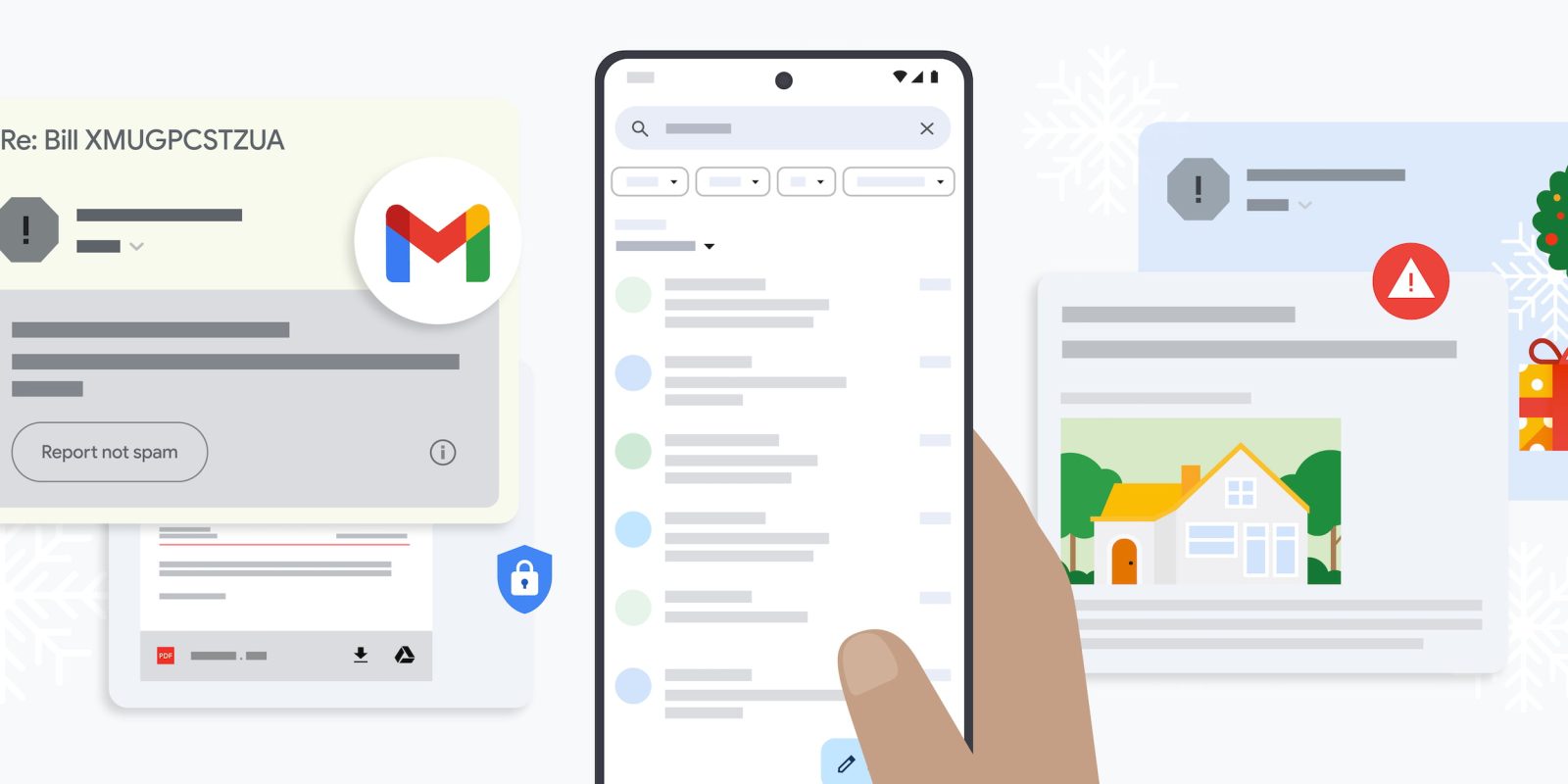
As “scammers go into overdrive during the holiday season,” Gmail’s latest AI-powered protections have resulted in “35% fewer scams (phishing, malware, etc.) hitting inboxes.”
That Gmail stat is for the “first month of the holiday season compared to last year.” Additionally, “millions more unwanted and potentially dangerous messages were blocked before they even reached inboxes.”
Over the past year, Google has developed several AI models to improve Gmail protections. In particular, one large language model (LLM) trained on phishing, malware, and spam helps block 20% more spam than before, while reviewing 1,000x more user-reported spam every day.
Meanwhile, Gmail before Black Friday (late November) started using a new AI model that “acts like a supervisor for our existing AI defenses by instantly evaluating hundreds of threat signals when a risky message is flagged and deploying the appropriate protections.” Like the LLM, it has resulted in “similarly promising results this holiday season.”
Looking ahead, Google says to expect a “second wave of attacks around this time in the holiday season as attackers adjust and try new things.”
The company identified “three scams in heavy use this holiday season”:
- Celebrity scams: Over the past month, many of the most common scams popping up reference famous people, either pretending to come from the celebrity themself or claiming a given celebrity is endorsing a random product. The associations don’t always make much sense, but the goal of these campaigns is to use the association to build trust and trick people into engaging with “too good to be true” scenarios.
- Extortion scams: This brand of scam is vicious and scary. Victims receive emails with details on their home address, sometimes even including a picture of the location. There are a few different versions of the messages, but they generally either include threats of physical harm or threats of releasing damaging personal material they say they acquired through a hack.
- Invoice scams: This method involves scammers sending fake invoices to unsuspecting users, typically trying to solicit phone calls to dispute the “charges” and using this connection as a way to convince victims to pay them. These scams aren’t new, but are persistent and incredibly prevalent this holiday season.
FTC: We use income earning auto affiliate links. More.
 3 hours ago
3
3 hours ago
3




















 English (US) ·
English (US) ·